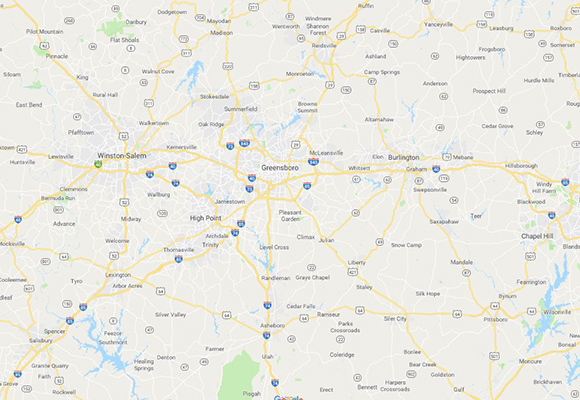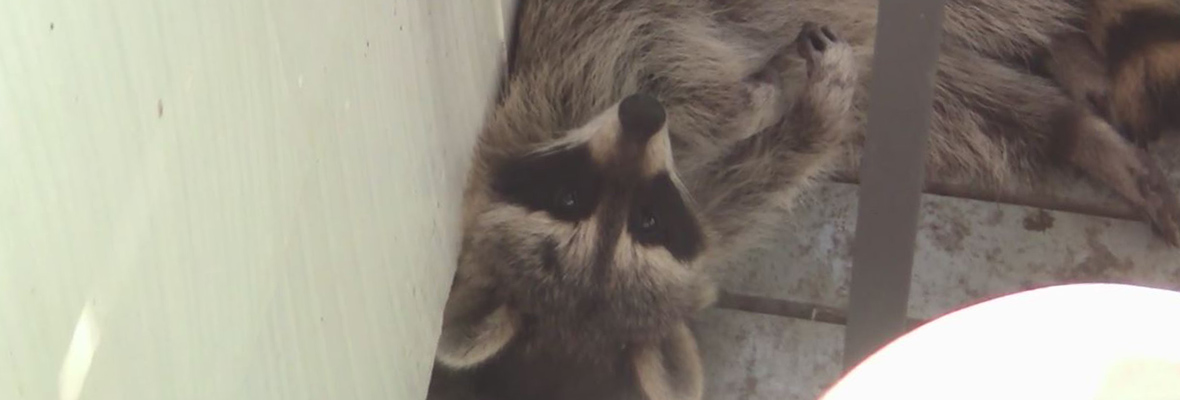
Pest Animal Removal Greenboro
Welcome to Pest Animal Greensboro ! We are a wildlife removal company servicing Greensboro , NC . We aren’t exterminators. We’re not really a “regular” pest control company. We prefer to call ourselves a dedicated wildlife removal company, handling reptiles and mammals. You’ll never find us using poisons as we work because we know they are inhumane and ineffective. We will inspect your home or commercial property on arrival, using an extensive 32-point inspection system. We will then use humane exclusion devices, and non-lethal live cage traps, to remove the critters from your home, encouraging them to set up home elsewhere, or relocating them as and where necessary. Once the animals are gone, we are free to seal up those holes they were once using to gain access, and we’ll then go ahead to repair any damage the little critters may have caused. Bats in the attic, for example, require a thorough cleanup of their guano, or bat droppings. Histoplasmosis is a disease threat present all the time the droppings are left lying around, and that’s before you think about odor and mold. We take care of the entire job from start to finish, and when we’re gone, it’ll be like the wildlife had never invaded in the first place ... except now the holes are sealed so nothing can gain entrance to your home or commercial property without you letting them in. Call us now at 336-310-0879 for your Greensboro wildlife control needs.
About Pest Animal Greensboro and Our Services:
Nuisance wildlife trapping and removal.
We offer attic cleanup and sanitation services.
Specializing in wildlife only - no poisons.
Fully North Carolina licensed and insured.
Poison-free Greensboro rodent control - rats and mice.
Experts in North Carolina bat removal from buildings.
Greensboro raccoon removal and skunk removal.
Removal of animals in the attic, like squirrels.
Dead animal removal, inside and outside.
Greensboro snake removal and prevention.
Greensboro bird control services.
We look forward to hearing from you!
Our Service Range

Our Service Range
We services Rockingham County, Alamance County, Randolph County, Davidson County, Forsyth County, and more. We also service Archdale, Burlington, High Point, Gibsonville, Sedalia, Jamestown, Stokesdale, Kernersville, Summerfield, Oak Ridge, Whitsett, Pleasant Garden, Forest Oaks, McLeansville, and more.Greensboro Wildlife Removal Tip of the Month: Do Raccoons Hibernate?
Raccoons are native to North America and are found all across the United States, except for some of the southwestern states such as Arizona, Utah, and Nevada, and parts of the Rocky Mountains. This means that in many places, winter is cold. Every wild animal has its own way to cope with cold temperatures. Some hibernate, some migrate, some put on extra fat or a heavier coat. The raccoon neither hibernates nor migrates. Instead, it prepares for winter.

Winter Preparation
During the summer and fall months, the raccoon eats everything it can get its little paws on. A raccoon puts on several extra pounds of weight during these months. Much of this fat is stored around its tail, then it uses the tail to wrap around itself to help stay warm. The raccoon also grows a thicker coat that helps to keep it warm.
Winter Sleep
The raccoon doesn’t truly hibernate. Rather, it will go into a sleep mode known as torpor. It may sleep for days, weeks, or even months, depending on how cold the winter is in its locale. When the weather turns cold, the raccoon will seek out a warm, safe place to curl up and go to sleep. When the temperature warms during the day, the raccoon may wake up and go out to scavenge for food.
This state of torpor causes the body temperature to lower and insulin to increase, which decreases the blood sugar. The raccoon’s body lives on the fat that was stored up during the summer and fall. It can lose between fourteen and fifty percent of its body weight during this sleep mode. That’s why it’s necessary to put on the weight in the summer. Raccoons that live in the warmer southern states never go into this sleep mode at all, unless it gets unusually cold.
Winter Denning
The raccoon seeks out a warm place in which to take his winter nap. Frequently, he will choose a hollow tree or log, but not always. Raccoons have been known to claim another animal’s den, or they may find an abandoned building to nest in. Unlike some other hibernating animals, raccoons will often sleep together to share their body heat.
Winter Mating
Raccoons mate most often in January, in the southern states, and February, in the central and northern states. This means that they become active during this time. Although raccoons are primarily nocturnal animals, during mating season they can be seen during the daytime when they are out searching for a mate. If the temperature dips below 25 degrees, though, they will retreat to the den.
Other Wildlife Control Greensboro information
- Venomous Snakes of North Carolina
- What to do about a trap-shy Greensboro house mouse
- Ways to prevent a Greensboro 'mole attack'!
- Best Methods to Keep Greensboro Geese Away From Your Premises
- Everything You Need To Know About the Greensboro Fox
- Greensboro Coyote Active in Day Time is it Rabid or Sick?

